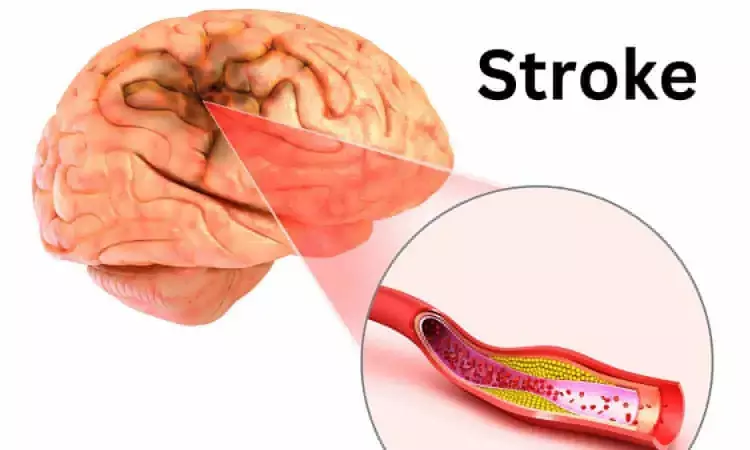- Home
- Medical news & Guidelines
- Anesthesiology
- Cardiology and CTVS
- Critical Care
- Dentistry
- Dermatology
- Diabetes and Endocrinology
- ENT
- Gastroenterology
- Medicine
- Nephrology
- Neurology
- Obstretics-Gynaecology
- Oncology
- Ophthalmology
- Orthopaedics
- Pediatrics-Neonatology
- Psychiatry
- Pulmonology
- Radiology
- Surgery
- Urology
- Laboratory Medicine
- Diet
- Nursing
- Paramedical
- Physiotherapy
- Health news
- Fact Check
- Bone Health Fact Check
- Brain Health Fact Check
- Cancer Related Fact Check
- Child Care Fact Check
- Dental and oral health fact check
- Diabetes and metabolic health fact check
- Diet and Nutrition Fact Check
- Eye and ENT Care Fact Check
- Fitness fact check
- Gut health fact check
- Heart health fact check
- Kidney health fact check
- Medical education fact check
- Men's health fact check
- Respiratory fact check
- Skin and hair care fact check
- Vaccine and Immunization fact check
- Women's health fact check
- AYUSH
- State News
- Andaman and Nicobar Islands
- Andhra Pradesh
- Arunachal Pradesh
- Assam
- Bihar
- Chandigarh
- Chattisgarh
- Dadra and Nagar Haveli
- Daman and Diu
- Delhi
- Goa
- Gujarat
- Haryana
- Himachal Pradesh
- Jammu & Kashmir
- Jharkhand
- Karnataka
- Kerala
- Ladakh
- Lakshadweep
- Madhya Pradesh
- Maharashtra
- Manipur
- Meghalaya
- Mizoram
- Nagaland
- Odisha
- Puducherry
- Punjab
- Rajasthan
- Sikkim
- Tamil Nadu
- Telangana
- Tripura
- Uttar Pradesh
- Uttrakhand
- West Bengal
- Medical Education
- Industry
Simple blood test may predict risk of stroke and cognitive decline: Study

A recent study unveils the potential of a blood test for predicting cerebral small vessel disease (CSVD), a common precursor to strokes and cognitive decline. By identifying high levels of specific molecules in the interleukin-18 network, researchers aim to offer a new tool for assessing stroke risk. This study was published in STROKE journal by Richard A. Martirosian and colleagues.
The study focused on the interleukin-18 network, a group of inflammatory molecules associated with CSVD and strokes. Blood samples and MRI scans from the Framingham Heart Study participants were used to develop a stroke risk scoring model. High levels of all five molecules in the interleukin-18 network were linked to evidence of CSVD and increased future stroke risk.
The key findings of the study were as follows:
• The study suggests that individuals with elevated levels of five molecules in the interleukin-18 network are more likely to develop CSVD, leading to an increased risk of stroke and cognitive decline.
• Utilizing data from the Framingham Heart Study, the researchers identified 2,201 participants aged 45 or above with blood samples and MRI scans, enabling them to develop a scoring model for stroke risk.
• Individuals scoring in the top 25% had an 84% risk of stroke during their lifetime, while those with slightly lower scores still faced a 51% risk.
• Despite the promising findings, further research is needed to validate the efficacy of the proposed blood test.
CSVD refers to chronic damage to small arteries in the brain, often leading to silent strokes and cognitive impairment. The disease results in reduced oxygen delivery to the brain tissue, contributing to various neurological symptoms. While the proposed blood test offers promise in predicting stroke risk, further research is necessary to refine the test's accuracy and applicability in clinical settings. Ideally, future studies will focus on prospective validation and establishing cutoff values for interpreting test results.
While there is currently no cure for CSVD, experts recommend heart-healthy practices to mitigate risk factors, including regular exercise and maintaining a healthy diet. Early identification of risk factors through continuity of care with a primary care physician is also crucial for implementing preventative measures.
The study underscores the potential of a blood test in predicting stroke risk by identifying specific inflammatory molecules associated with CSVD. While more research is needed to validate these findings, the proposed test holds promise as a valuable tool for assessing and managing stroke risk in clinical practice.
Reference:
Martirosian, R. A., Wiedner, C. D., Sanchez, J., Mun, K. T., Marla, K., Teran, C., Thirion, M., Liebeskind, D. S., McGrath, E. R., Zucker, J. M., Bernal, R., Beiser, A. S., DeCarli, C., Himali, J. J., Seshadri, S., & Hinman, J. D. (2024). Association of incident stroke risk with an IL-18-centered inflammatory network biomarker composite. Stroke; a Journal of Cerebral Circulation. https://doi.org/10.1161/strokeaha.123.044719
Dr Riya Dave has completed dentistry from Gujarat University in 2022. She is a dentist and accomplished medical and scientific writer known for her commitment to bridging the gap between clinical expertise and accessible healthcare information. She has been actively involved in writing blogs related to health and wellness.
Dr Kamal Kant Kohli-MBBS, DTCD- a chest specialist with more than 30 years of practice and a flair for writing clinical articles, Dr Kamal Kant Kohli joined Medical Dialogues as a Chief Editor of Medical News. Besides writing articles, as an editor, he proofreads and verifies all the medical content published on Medical Dialogues including those coming from journals, studies,medical conferences,guidelines etc. Email: drkohli@medicaldialogues.in. Contact no. 011-43720751


